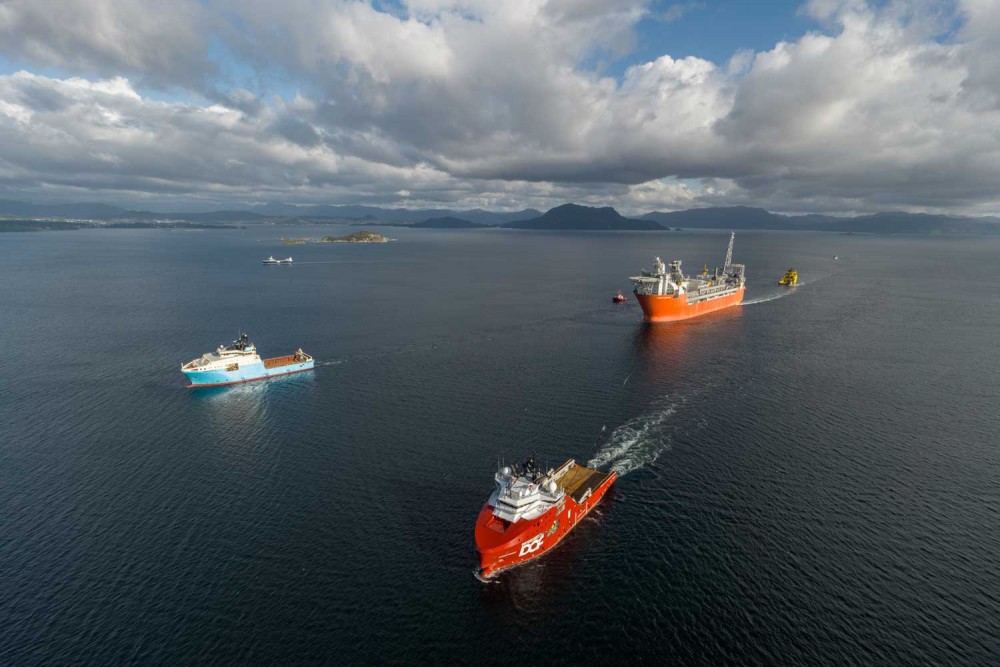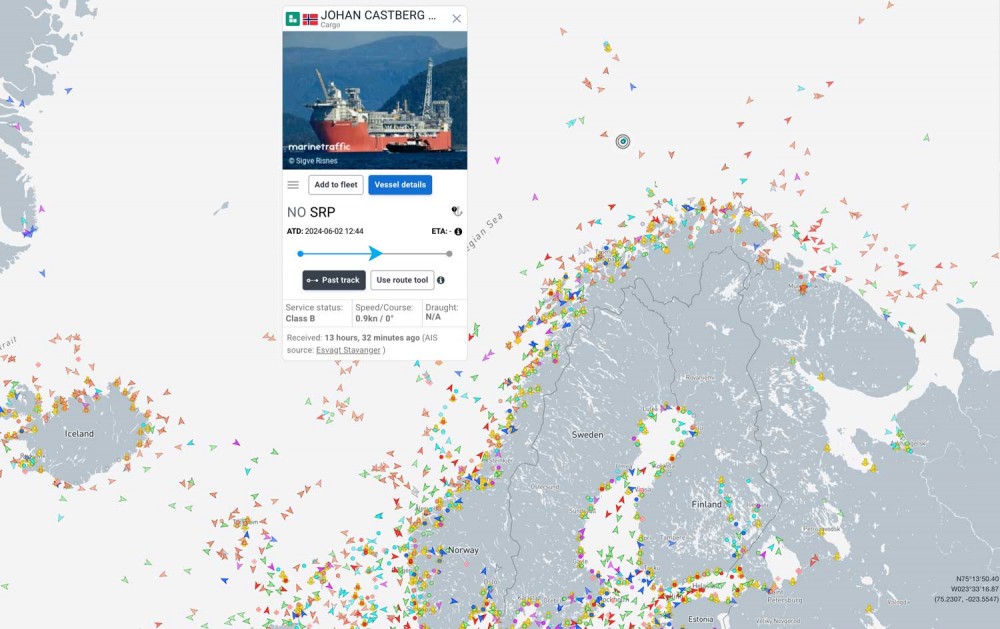The Johan Castberg oil ship is on its way to Norway’s new Arctic field
The 300 meter long FPSO will before year’s end be ready to give a boost to the country’s oil production in Arctic waters. Project operator Equinor is now building a comprehensive security and preparedness system for the southwestern parts of the Barents Sea.

The Floating Production Storage and Offloading (FPSO) is the largest vessel of its kind ever built by Equinor. It is the hub for the company’s development of the Johan Castberg, an oil field with reserves up to 650 million barrels of oil equivalent.

Over the past weeks, the vessel has been on its way from a yard in Stord, southwest Norway, to the Barents Sea. On the 30th of August, it had made it to 74,5° North. Ship traffic tracking services show the production unit surrounded by at least ten support ships.
According to Equinor, the Johan Castberg FPSO is designed for a daily production of almost 220,000 barrels. The oil field is located more than 200 km north of the Norwegian mainland.
The oil project is operated by Equinor, the Norwegian state oil company, in cooperation with Vår Energi and Petoro. The oil will be produced from 30 wells distributed across 10 subsea templates and two satellite structures, Equinor informs.
Total investments are estimated to more than 80 billion NOK (€6,85 billion).
As the FPSO approaches its production site, Equinor is stepping up preparedness and security procedures for the southwestern parts of the Barents Sea.
A new area-wide emergency preparedness solution will add new resources, expertise and capabilities will strengthen safety and emergency preparedness in the ocean area, the company informs.
The new system that will be operational from 1 January 2025 includes one all-weather search and rescue (AWSAR) helicopter of the type S-92, to be stationed at Hammerfest Airport, and three emergency response and rescue vessels with standing oil spill response capabilities.
Equinor also plans to build a new emergency response and rescue vessel that will contribute to safety, short response times and inspections.
“Safety is our number one priority, we must have a good emergency preparedness system in place wherever we operate,” says Grete B. Haaland, Equinor’s senior vice president for Exploration & Production North.
“With Johan Castberg coming on stream towards the end of the year and increased activity in the north, we are now establishing an area-wide emergency preparedness system in the Barents Sea in the Barents Sea,” she underlines.
Located in Kirkenes, Norway, just a few kilometres from the borders to Russia and Finland, the Barents Observer is dedicated to cross-border journalism in Scandinavia, Russia and the wider Arctic.
As a non-profit stock company that is fully owned by its reporters, its editorial decisions are free of regional, national or private-sector influence. It has been a partner to ABJ and its predecessors since 2016.